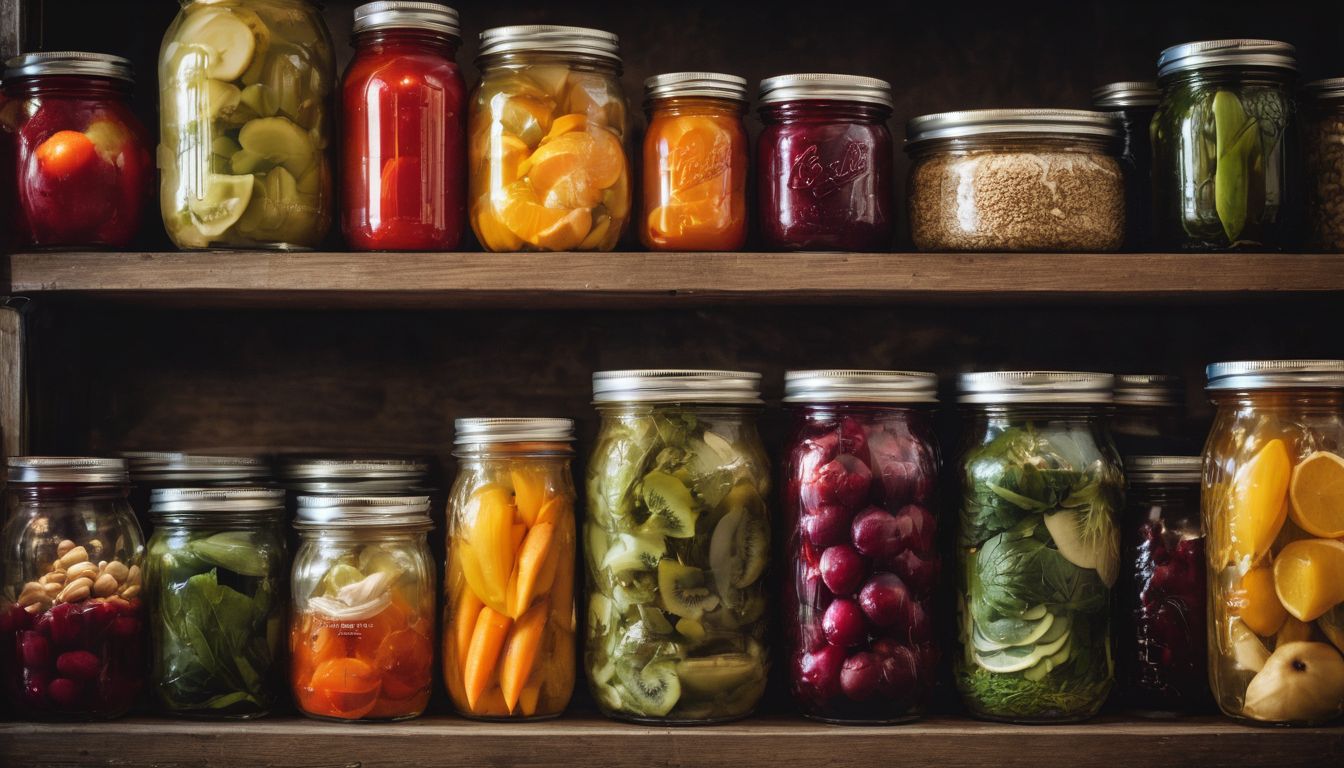We all know how crucial it is to drink water, but sometimes we forget just how much our bodies need it. A staggering 60% of the human body is made up of water, underlining hydration’s key role in our overall health.
This blog will guide you through the benefits of hydration and introduce sustainable ways to quench your thirst. Stay tuned – your planet-friendly water bottle awaits!
Key Takeaways
- Drinking plenty of water maintains body temperature, lubricates joints, and supports proper digestion.
- Using stainless steel water bottles instead of plastic reduces pollution and prevents harmful chemicals from leaching into the water.
- Reusable stainless steel bottles are long – lasting, better for the environment and come with customisable options to fit personal styles.
- Eco – friendly water bottle choices like stainless steel help reduce plastic waste in landfills and oceans, protecting marine life.
- By choosing sustainable hydration methods we support environmental conservation while staying hydrated for health benefits.
The Importance of Staying Hydrated
Staying hydrated is essential for maintaining good health, as it helps to regulate body temperature, lubricate joints, and aid in digestion. Dehydration can lead to dizziness, headaches, and fatigue.
Benefits of staying hydrated
Drinking enough water each day is vital for your health and well-being. It keeps your body functioning optimally while you make eco-friendly choices in hydration.
- Maintaining proper hydration helps your brain stay alert, improving concentration and cognitive function.
- Drinking water supports heart health by helping to maintain blood pressure and heart rate.
- Water aids in digestion by dissolving fats and soluble fibre, allowing your digestive system to work more efficiently.
- Adequate fluid intake ensures your skin remains supple and hydrated, reducing signs of ageing.
- Keeping hydrated assists in regulating body temperature through sweating and respiration.
- Hydration minimises muscle fatigue during exercise, promoting better physical performance.
- Consuming sufficient water can help with weight management by increasing satiety and reducing hunger pangs.
- Staying hydrated decreases the risk of urinary tract infections and kidney stones by flushing out toxins from the body.
Health effects of dehydration
- Reduced energy levels: Dehydration can lead to decreased energy levels, making it difficult to carry out daily activities.
- Impaired temperature regulation: Dehydration hinders the body’s ability to regulate temperature, leading to discomfort and potential heat-related illnesses.
- Kidney problems: Insufficient water intake can strain the kidneys and increase the risk of kidney stones and urinary tract infections.
- Digestive issues: Dehydration may contribute to constipation and other digestive problems, affecting overall well-being.
- Electrolyte imbalance: Lack of hydration can disrupt the balance of essential electrolytes in the body, impacting muscle function and overall health.
The Environmental Impact of Plastic Water Bottles
Plastic water bottles have a detrimental impact on the environment, contributing to pollution, landfill waste, and harm to marine life. The use of plastic bottles also leads to the leaching of harmful chemicals into the water, posing health concerns for consumers.
Pollution
Plastic water bottles contribute to pollution in various ways. When disposed of improperly, they end up in landfills, where they release harmful chemicals into the soil and groundwater.
Additionally, plastic bottles often make their way into rivers and oceans, posing a significant threat to marine life. These bottles take hundreds of years to decompose, contributing to long-term environmental pollution and affecting ecosystems.
Moreover, the production and transportation of plastic water bottles release greenhouse gases into the atmosphere, exacerbating climate change. Plastic bottle manufacturing contributes to air pollution and the depletion of natural resources, further escalating environmental degradation.
Landfill waste
Plastic pollution is a major problem, with over 8 million tons of plastic finding its way into the oceans every year. This has significant implications for marine life and ecosystems.
Furthermore, once these plastic bottles are discarded, they end up in landfills where they take hundreds of years to decompose. As a result, the excessive landfill waste not only takes up precious space but also contributes to environmental degradation.
To combat this issue, environmentally conscious individuals are turning to reusable stainless steel water bottles as a sustainable alternative to single-use plastics. By opting for these eco-friendly hydration containers, we can significantly reduce the amount of plastic waste ending up in landfills while promoting responsible consumption and conservation of our natural resources.
Harm to marine life
Plastic bottles harm marine life. The discarded plastic enters oceans and waterways. Sea creatures mistake it for food, leading to ingestion of harmful materials. This causes injury or death to marine animals.
Additionally, the breakdown of plastic releases toxic chemicals into the water, further endangering aquatic life.
Marine wildlife also get entangled in plastic waste. This leads to suffocation or restricted movement, impacting their survival. Biodegradable options like stainless steel bottles can help reduce this harm to marine life by preventing plastic pollution in our precious oceans and water bodies.
The Drawbacks of Plastic Water Bottles
Plastic water bottles can leach harmful chemicals into the water, posing health risks. Additionally, the production and disposal of plastic bottles contribute to environmental pollution and harm marine life.
Chemical leaching
Chemical leaching from plastic water bottles can release harmful substances into the water, posing potential health risks. When exposed to high temperatures or prolonged use, chemicals like BPA and phthalates may seep into the liquid, particularly if the bottle is old or worn.
This can be concerning for those seeking environmentally friendly hydration options and aiming to reduce their exposure to synthetic compounds.
To address this issue, stainless steel water bottles offer a safer alternative and eliminate the risk of chemical leaching. With durable construction and non-reactive properties, they ensure that no harmful substances contaminate your drinking water.
Health concerns
Plastic water bottles can leach harmful chemicals into the water they contain, posing health risks such as endocrine disruption and potential carcinogenic effects. Switching to stainless steel water bottles eliminates exposure to these harmful chemicals, ensuring safer hydration for both you and the environment.
By choosing eco-friendly alternatives like stainless steel, you can reduce your carbon footprint while safeguarding against potential health hazards associated with plastic bottles.
Making the switch to sustainable hydration options not only benefits your health but also contributes to a healthier planet. Stainless steel water bottles offer a practical and stylish alternative that aligns with environmentally conscious choices.
Choosing reusable stainless steel water bottles helps in reducing plastic waste pollution and promotes conservation of natural resources, providing a simple yet impactful way to support environmental preservation efforts.
Why Stainless Steel Water Bottles are the Future
Stainless steel water bottles are the future due to their sustainable and eco-friendly qualities. With benefits such as durability, long-lasting nature, and recyclability, stainless steel water bottles offer a more environmentally responsible option for hydration.
Sustainable option
Choose stainless steel water bottles as a sustainable option for your hydration needs. These bottles offer an eco-friendly alternative to single-use plastics, reducing plastic waste and environmental harm.
Stainless steel is durable, reusable, and recyclable, making it an excellent choice for environmentally conscious individuals looking to support conservation efforts.
Stainless steel water bottles provide a practical way to stay hydrated while minimising environmental impact. Their long lifespan and resistance to corrosion make them a reliable choice for those seeking environmentally responsible hydration options.
Benefits of stainless steel
Transitioning from the sustainable option of stainless steel water bottles to their specific benefits, it’s important to note that these containers are not only eco-friendly but also practical and durable.
Stainless steel water bottles are a wise choice for environmentally conscious individuals looking for a reusable hydration solution. They offer longevity and resistance to corrosion, ensuring they last longer than single-use plastic bottles.
Stainless steel options often come with insulating properties, keeping drinks hot or cold for several hours. This makes them suitable for various activities like hiking, commuting, or simply staying hydrated throughout the day without constantly having to refill.
Benefits of Using Stainless Steel Water Bottles
Stainless steel water bottles are an eco-friendly and sustainable option for hydration, reducing the need for single-use plastic bottles. They offer practical advantages such as durability, insulation, and customisable options.
Eco-friendly
Choosing eco-friendly water bottles is a simple yet impactful way to reduce plastic waste and minimise environmental harm. By opting for reusable, refillable containers like stainless steel water bottles, individuals can actively contribute to the conservation of water resources and protect the planet from the detrimental effects of plastic pollution.
These environmentally responsible hydration options not only offer practical advantages but also align with sustainable alternatives to single-use plastics, making them an ideal choice for those seeking eco-conscious hydration solutions.
Moreover, using eco-friendly water bottles promotes a sense of environmental responsibility while supporting efforts to reduce landfill waste and curb pollution. With refillable water flasks or biodegradable containers, individuals can uphold their commitment to sustainability and make a positive impact on the environment through everyday choices.
Practical advantages
Practical advantages of using stainless steel water bottles include their durability, making them a long-lasting hydration solution. Moreover, stainless steel bottles are easy to clean and maintain, providing a more sustainable option for environmentally conscious individuals. Additionally, these bottles are versatile and can be used for both hot and cold beverages, making them suitable for various activities and climates. Stainless steel water bottles also offer the benefit of being lightweight and portable, allowing for convenient use on the go. Furthermore, they come in a variety of sizes and designs, providing customisable options to suit individual preferences. Lastly, stainless steel bottles are resistant to odours and stains, ensuring a fresh drinking experience with each use.
Customisable options
Stainless steel water bottles offer customisable options, allowing you to express your style while reducing plastic waste. Many brands offer a variety of colours, designs, and sizes to suit different preferences.
Some even provide the option for personalisation with names or unique patterns, making them a trendy and eco-conscious choice for environmentally responsible individuals in search of sustainable hydration solutions.
Additionally, some stainless steel bottle manufacturers also provide interchangeable lids and accessories such as handles or straps which enhance practicality and convenience while promoting an environmentally conscious mindset amongst users.
Conclusion
In conclusion, making the switch to eco-friendly water bottles can significantly reduce plastic waste and benefit the environment. Reusable options like stainless steel bottles offer a sustainable solution to staying hydrated on the go.
By choosing environmentally responsible hydration containers, we can all play a part in protecting our planet for future generations. It’s time to make a positive impact through our hydration choices.
FAQs
1. Why should we choose eco-friendly water bottles?
Eco-friendly water bottles help reduce plastic waste and provide a sustainable alternative to single-use plastics, supporting hydration with minimal environmental impact.
2. What are the advantages of using reusable hydration containers?
Reusable hydration containers are environmentally responsible, often made from materials that cause less harm to our planet than traditional plastic bottles.
3. Can eco-conscious water bottles really make a difference in protecting the environment?
Yes, choosing refillable water bottles over disposable ones can significantly cut down on pollution and save resources, making it an eco-conscious hydration choice.
4. Are there any disadvantages to using eco-friendly water bottles?
While they may initially cost more than disposable ones, reusable drink containers offer long-term savings and benefits for both your health and the environment.
5. What options exist for those looking for biodegradable water containers?
There are several environmentally friendly hydration options available today including biodegradable or compostable vessels designed to have little impact on the earth after use.





